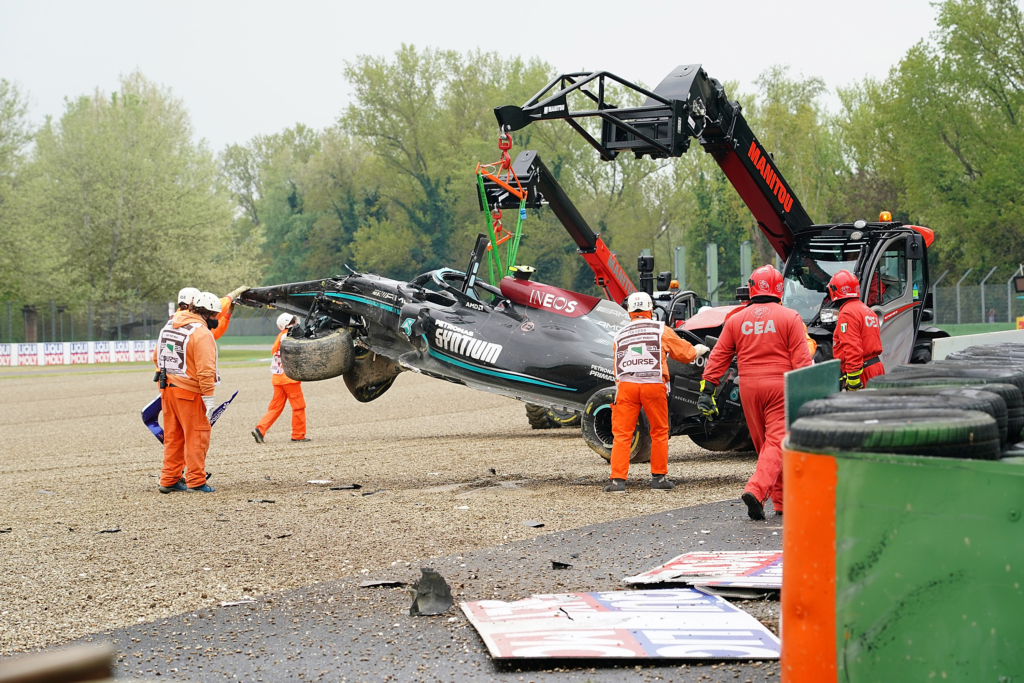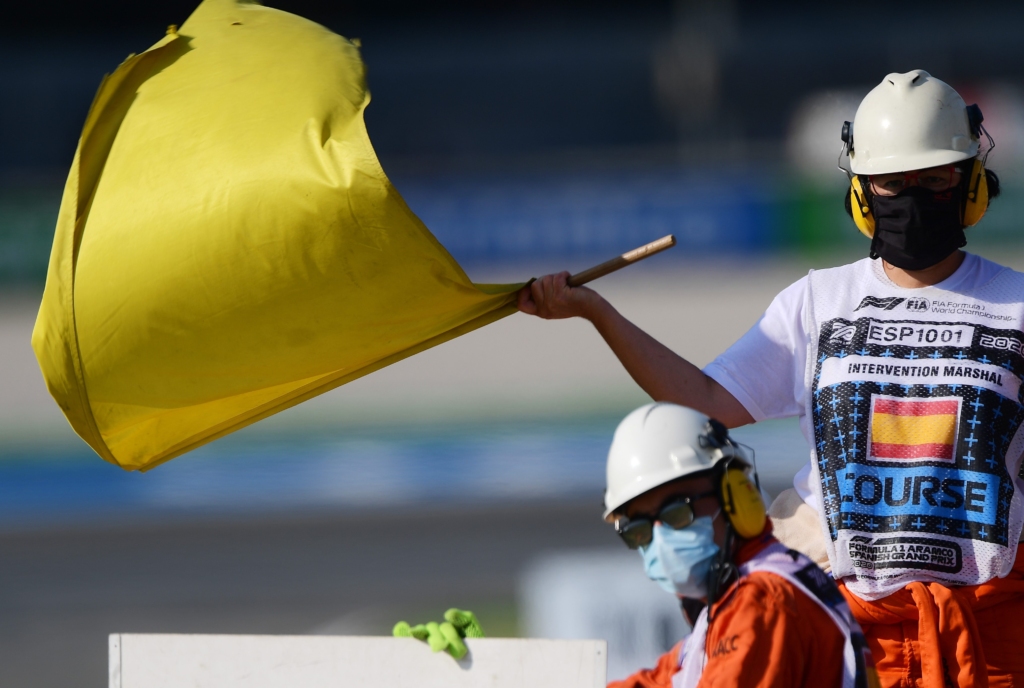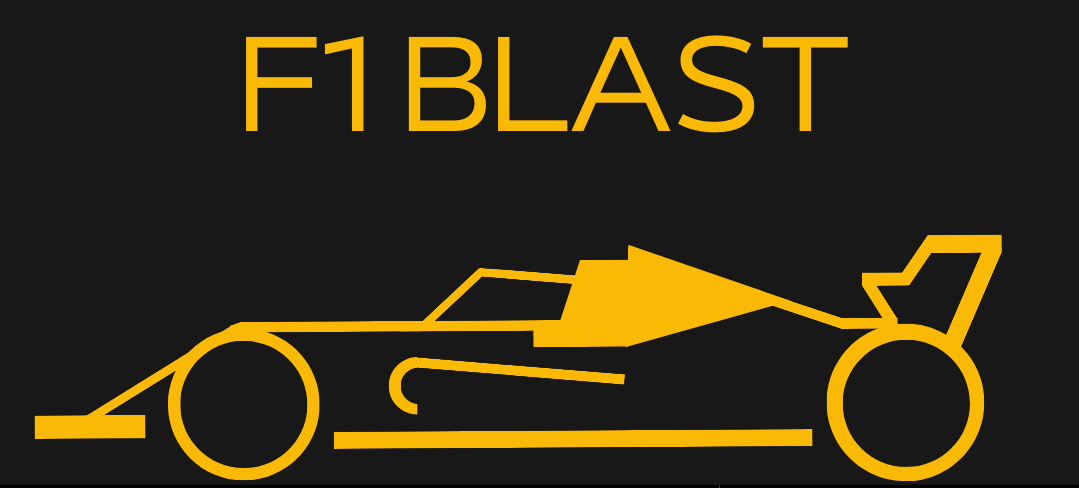Introduction to marshals in f1
Marshals in F1 play a crucial role in ensuring the safe and smooth running of Grand Prix races. Acting as the eyes and ears of race control, marshals are stationed trackside to monitor circuit conditions, respond swiftly to any incidents, and assist drivers where necessary.
Clad in their iconic orange uniforms, marshals are a familiar sight at Formula 1 events across the globe. Whether waving flags to communicate vital information to drivers, clearing debris from the track, or providing rapid medical assistance in the event of a crash, marshals help races unfold safely and effectively.
The work of a marshals in F1, as well as most of other racing series is entirely voluntary, undertaken by passionate motorsport enthusiasts. It is physically and mentally demanding, requiring marshals to make split-second decisions in high-pressure situations. Their coordination and teamwork are critical to the success of any Grand Prix.
For those seeking to get more immersed in the world of Formula 1, becoming a marshal offers unique access and perspective. It provides opportunities to contribute up close while expanding knowledge and experience.
The Importance of Marshals in Formula 1
By working trackside, marshals form the first line of defense when incidents occur. Their rapid response helps mitigate dangerous situations, prevent additional collisions, and clears the circuit so racing can safely resume.
Through their specialized roles, marshals also facilitate communication between race control and competitors. Messages and warnings delivered through flag signals are vital for drivers to understand the status of the track and modify their driving accordingly.
The competent working of flag, fire, medical, and other marshals is integral to minimizing risks at already highly hazardous Grand Prix events. Formula 1 simply could not take place without these volunteer officials dedicated to safety and sporting integrity.
What Marshals Do in Formula 1
There are numerous specialized roles for marshals in f1 and accompanying responsibilities that collectively ensure the smooth and safe running of a Grand Prix weekend. While sharing the common purpose of assisting drivers and officials, the required competencies and duties vary for the different types of Formula 1 marshals.

Roles and Responsibilities of marshals in f1
Here is an overview of key marshal roles and their associated tasks:
Flag Marshals
- Communicate vital track condition information to drivers through an internationally recognized system of colored flags
- Promptly wave yellow flags to warn approaching drivers of hazards and signal them to slow down
- Deploy blue flags to indicate a faster car is approaching and requires a clear path to overtake safely
- Show the green flag when a hazard has been cleared to inform drivers to resume racing speed
- Display final results by waving the iconic black and white checkered flag as cars cross the finish line
Fire Marshals
- Rapidly respond to any fires within the circuit, including those originating from crashes
- Utilize specialist equipment and training to quickly extinguish flames
- Prioritize extracting any drivers trapped in burning vehicles
Medical Marshals
- Administer emergency first aid trackside to injured drivers and circuit personnel
- Coordinate transport of casualties requiring further medical care
- Maintain stocks of medical equipment around circuit areas
Incident Response Marshals
- Swiftly attend crash sites or any other track disruptions
- Assess situations and coordinate required resources such as medical, fire, or recovery
- Restore track to safe condition by clearing debris, spilled fluids, and damaged vehicles
Recovery Marshals
- Safely remove immobilized vehicles from track and surrounding runoff areas
- Transport damaged cars to designated garage or paddock locations for further inspection
- Assist teams to restart stalled vehicles where feasible
In this high-speed, chaotic environment, all marshals in f1 event must function effectively as a cohesive unit. Seamless communication and coordination between different specialties are vital when reacting to track incidents. Rapid but careful decision making can make the difference between a minor disruption and a major disaster.

The Skills and Qualities of an Effective Marshal
Given the immense responsibility entrusted with marshals to maintain safety, there are certain core competencies Formula 1 marshals require:
- Situational Awareness: Marshals must remain highly observant and alert to detect track incidents as early as possible. This allows vital seconds to be gained when mobilizing emergency responses.
- Decision Making: Marshals frequently have to make judgement calls in intense, rapidly evolving situations. Weighing various courses of action and implementing the optimal decisions is crucial.
- Communication Skills: Clear and concise exchange of information is essential, whether via flag signals, radio contact, or in-person reports. Marshals must describe unfolding events accurately to direct appropriate resources.
- Teamwork: Coordinating seamlessly alongside other marshals is vital to deliver unified, timely responses when emergencies occur.
- Physical Fitness: Marshals may be exposed to extreme weather conditions for hours while needing to sprint or carry heavy equipment at a moment’s notice.
Underpinning these practical competencies, those who want to become marshals in f1 also are required to have certain personal attributes:
- Commitment: Marshalling demands dedication spanning entire Grand Prix weekends, in all weather conditions.
- Calmness Under Pressure: With immense responsibility for safety and lives at stake, marshals must maintain composure when plunged into extreme situations.
- Discipline: Strictly following procedures, respecting hierarchy, and not overstepping duties are fundamental when acting as a marshal.
- Motorsport Passion: The role requires tireless support for the racing itself. This passion sustains marshals through challenging demands.
By leveraging both learned skills and innate qualities, marshals in F1 fulfill irreplaceable functions at the very heart of Grand Prix racing’s successful functioning.
How to Become a Marshal in Formula 1
Eager to get involved with Formula 1 as a marshal but wondering how to start? Here is a step-by-step overview of what is required and the training process involved to volunteer trackside at Grand Prix events.
Basic Requirements
While formulas vary slightly between race organizers and sanctioning countries, core prerequisites to become a Formula 1 marshal include:
- Minimum Age: 18 years old. Minors can participate under supervision in junior training initiatives.
- Physical Health: Sufficing basic fitness levels and medical clearance to perform duties.
- Language Skills: Fluency in English is essential. Additional languages like host country tongue an asset.
- Availability: Full weekend commitment required for race events.
- Legal Status: Hold valid passport and cleared any visa requirements for host country.
Candidates must display responsible attributes in line with representing the sport’s integrity. Enthusiasm to support Grand Prix racing is also vitally important.
Training and Certification
Marshals undergo rigorous training tailored to their specialized duties at a Formula 1 event. While programs differ globally, core elements include:
- Introductory courses on critical racing concepts like flags, safety systems, and roles.
- High-intensity simulation scenarios mirroring Grand Prix environments and pressures.
- Shadowing opportunities to learn from senior marshals’ experience trackside.
- Extensive time devoted honing communications, fitness, team coordination, and emergency reflexes.
Upon demonstrating competence across assessment mechanisms like exams or observed drills, marshals achieve certification to participate at races. Higher grades come via further skill development and accrued experience.
However, training never stops for Formula 1 marshals always seeking to enhance their responsiveness. Continual development opportunities help them react better as risks escalate alongside advancing vehicle performance.
Volunteering and Gaining Experience
Before working events at the pinnacle of motorsport, prospective marshals in F1 must gain experience from lower racing tiers. Opportunities to develop while making smaller-scale contributions typically include:
- Volunteering at local circuits for club racing events.
- Supporting prominent national championships races when they visit major tracks.
- Assisting at feeder open-wheel series like Formula 2 and Formula 3.
- Shadowing senior marshals occupying advisory oversight positions.
After proven expertise has been demonstrated through these channels over at least 12 months, budding marshals can apply for supervisory approval. If granted, they participate in rigorous selection processes seeking limited openings supporting Formula 1 events.
Promising candidates displaying potential might first be assigned to free practice sessions. Priority race day duties go to those demonstrating supreme competence under intense scrutiny.
Through this journey spanning smaller events to grand prix racing’s summit, marshals gain acclaimed status denoting their capabilities. However, even Formula 1’s most revered marshals continue learning with each new challenge in motorsport’s unrelenting evolution.
The Path Forward: Advancing as a Marshal
Progressing from a novice to senior marshal, and possibly occupying specialist positions, largely depends on commitment and experience gained. However, opportunities to continue evolving include:
- Pursuing Mentorships: Learning from respected senior marshals accelerates competence acquisition.
- Seeking Extra Training: Extend expertise through intensive programs or tailored modules.
- Diversifying Experience: Participate across other motorsport disciplines to expand perspectives.
- Joining Committees: Help shape standards by contributing to regulatory panels.
- Publishing Guidance: Marshal manuals disseminate wisdom to next generations.
- Public Speaking: Lectures or media appearances spread positive messaging.
Progressing through these avenues, Formula 1 marshals act as ambassadors for motor racing’s spirit. They work tirelessly to push safety developments further, propelling the sport towards exciting new eras.
FAQs About Becoming an F1 Marshal
Eager to join Formula 1 as a marshal but seeking some final clarifications? Here are answers to some frequently asked questions:
How big is the time commitment required?
Marshals provide support across entire Grand Prix weekends, from Thursday setup through Sunday night takedown. This requires taking at least 4 days off regular commitments per event.
Is there any compensation provided?
Marshaling itself is entirely voluntary with no wages. However, expenses like accommodation and meals are covered by race organizers. Small daily stipends, event merchandise, and performance rewards are sometimes offered too.
How physically demanding is the work?
Reasonable fitness is required to perform some intensive duties, like sprint responses or debris removal. However, most responsibilities pose modest physical exertion.
What are the benefits of becoming a marshal?
Marshals gain exceptional access all across Formula 1 events. They play integral roles at global spectacles while forging bonds through teamworkpursuing collective safety goals.
How many marshals work an F1 race?
Over 500 marshals reliably fulfill specialized duties at every Grand Prix. Hundreds more volunteer across support series completing the race meeting programs.
Is prior experience mandatory for Formula 1?
Proven expertise gained from national motorsport events is an unofficial prerequisite before Formula 1 duties are assignedto marshals.
What specialist equipment do marshals use?
Flag, fire, and medical marshals utilize purpose-built suits, vehicles, communications kits and warning devices tailored to their rescue work.
By dedicating themselves to the thrilling world of Formula 1 through marshaling, volunteers gain exceptional access while helping ensure events unfold safely. It provides a unique lens into Grand Prix racing’s inner workings.

